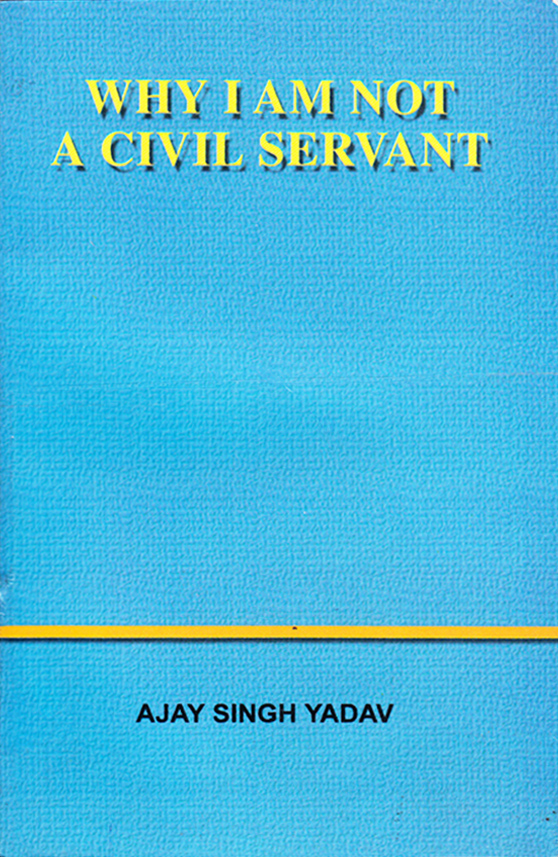Why I wrote this book
I realize that the title of the book may call for some kind of explanation. When Bertrand Russell wrote -“why I am not a Christian”, he meant his book to be a systematic refutation of a creed which claimed that it could be proved by unaided reason alone without references to revealed dogma. I have a similar polemical purpose. My purpose in writing this book is to debunk civil service elitism. Russell was of course a famous philosopher and I am only an unknown citizen, but I do think my two decades long experience of the civil service and the intrinsic important of the subject gives me a right to divagate into print.
When I announced my decision to leave the civil service my friends and colleagues all had one question for me- what are you going to do now- how are you going to fill your days? This was said variously in tones of exasperation, commission and incomprehension. So persistent did the questioning grow and so obvious was their bafflement at something which appeared at something which appeared to them to be an act of pure folly that I was forced to tell them finally – “I shall live on until I die”. The humor of this remake was not appreciated but I quote this here because the words are not my own but were uttered by a famous statesman in circumstances that deserve to be retold here.
Everyone has heard of Clemenceau –the great French statesmen and Prime Minister who led his country to victory in the First World War –after tremendous suffering and sacrifice. Clemenceau was known as “The Tiger”, because of his fierce pride, honesty and intolerance of humbug.
After winning the war Clemenceau retired from public life, to love out his old age in a modest rented apartment. He was offered a state pension and other honors, but true to character, he scored the trappings of authority as mere bauble, unworthy of a great statement. He was proud of his poverty and apt to come down heavily on those who came to commiserate with him on this account. When one officious French journalist asked him the same question –what are you doing to do now he answered testily; “why, I am going to live on until I die.”
I cite this incident, not because I put myself on the same footing as Clemenceau, but because his perfect contempt for really splendid. His pride in his status as a free citizen, not dependent on handouts from the state is the very basis of the civic virtue so essential in the creation of a civil society. I cannot attempt to disguise from the reader of this truthful chronicle the fact that I feel the same contempt for those of my former colleagues who makes this their main objective in life. I think this degrading lust for the plums of office has been the undoing of the civil service. The social consequences of this attitude deserve to be put down in plain words, for it has had a disastrous effect on the quality of governance in this country in this book I have done so.
The reader will therefore come across many structures on the civil service in the course of this book and all of them are well deserve and to the point. Indeed, if have if anything been too mild in chronicling this story of decline and decadence. But I do not want to give the impression that the civil service does not have men and women of honor and integrity. It has people of the highest caliber, but my regret is these people are still too small a minority.
They do not set the moral tone of the civil service, they are tolerated rather than admired, and they retain their character and values only as a heroic commitment to a personal code of honor, which has neither ant official sanction nor any general approbation. Indeed the clever careerist looks upon these honorable exception as irrelevant and out of date fossils. All of which makes me sad. That is why I have written this book.






